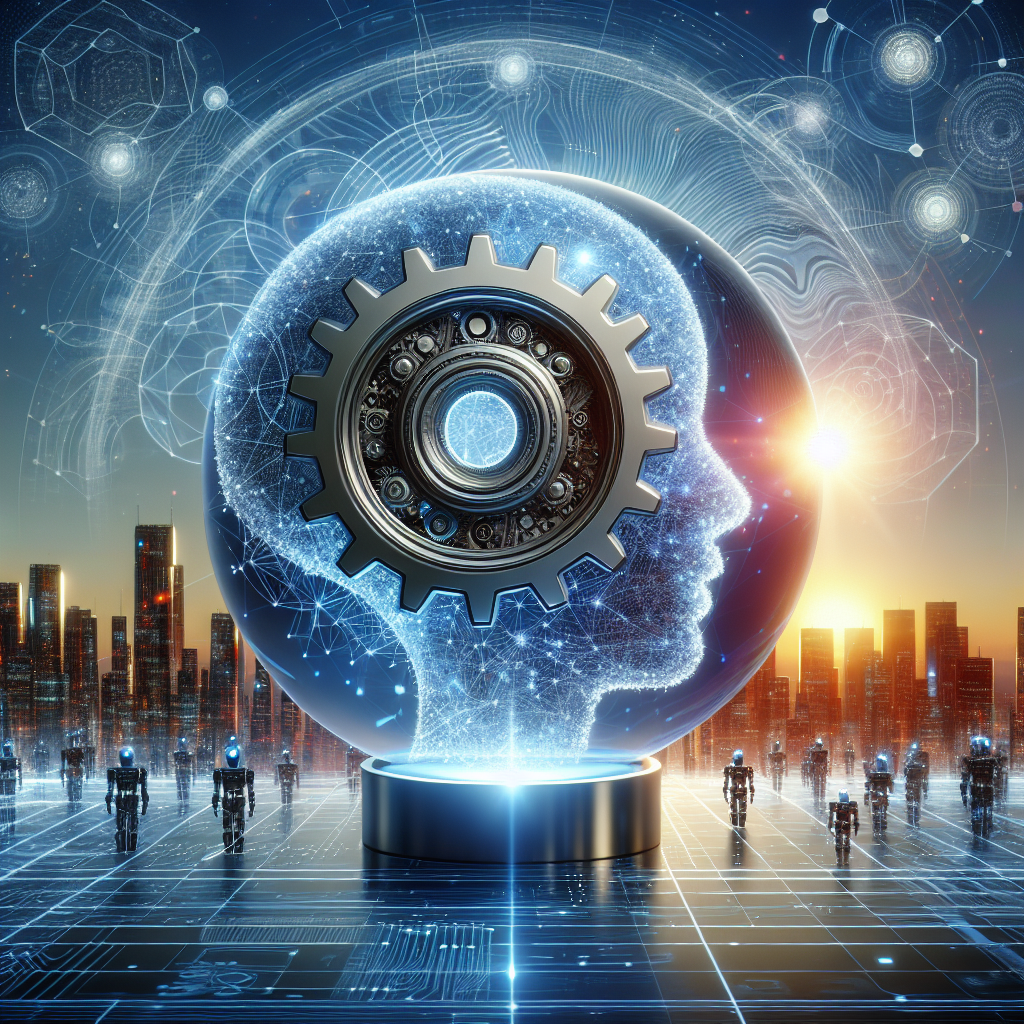The Impact of AGI on Society: Preparing for a Future of Intelligent Machines
Artificial General Intelligence (AGI) is a term that refers to the development of machines that possess the ability to perform any intellectual task that a human can. This concept has been the subject of much speculation and debate in recent years, as advancements in technology continue to push the boundaries of what is possible.
While AGI has the potential to revolutionize industries and improve the quality of life for many people, it also raises a number of important ethical and societal questions. In this article, we will explore the impact of AGI on society and discuss how we can prepare for a future of intelligent machines.
The Benefits of AGI
One of the main benefits of AGI is its potential to solve complex problems that are beyond the capabilities of human intelligence. For example, AGI could be used to develop new medicines, predict natural disasters, or optimize transportation systems. By harnessing the power of AGI, we could make significant advancements in fields such as healthcare, transportation, and environmental conservation.
AGI also has the potential to increase productivity and efficiency in many industries. By automating tasks that are currently performed by humans, AGI could free up valuable time and resources that could be used for more creative and innovative endeavors. This could lead to increased economic growth and higher standards of living for many people.
Furthermore, AGI has the potential to improve the quality of life for individuals with disabilities. For example, AGI could be used to create assistive technologies that help people with physical or cognitive impairments to live more independently. By harnessing the power of AGI, we could create a more inclusive society where everyone has the opportunity to thrive.
The Challenges of AGI
Despite its many benefits, AGI also poses a number of challenges that must be addressed. One of the main concerns surrounding AGI is the potential for job displacement. As machines become more intelligent and capable of performing a wider range of tasks, there is a risk that many jobs could be automated, leading to widespread unemployment and economic instability.
Another challenge is the ethical implications of AGI. For example, as machines become more intelligent, they may be able to make decisions that have far-reaching consequences for society. It is essential that we develop ethical guidelines and regulations to ensure that AGI is used in a responsible and ethical manner.
Additionally, there are concerns about the potential for AGI to be misused or weaponized. For example, AGI could be used to develop autonomous weapons systems that could pose a threat to global security. It is crucial that we develop safeguards and regulations to prevent the misuse of AGI and ensure that its benefits are realized in a safe and responsible manner.
Preparing for a Future of Intelligent Machines
In order to prepare for a future of intelligent machines, it is essential that we take a proactive approach to addressing the challenges and opportunities posed by AGI. One key step is to invest in education and training programs that equip individuals with the skills they need to thrive in a rapidly changing technological landscape. By providing people with the tools and knowledge they need to adapt to new technologies, we can ensure that everyone has the opportunity to benefit from the advancements in AGI.
Another important step is to develop ethical guidelines and regulations that govern the use of AGI. By establishing clear guidelines for the development and deployment of AGI, we can ensure that it is used in a responsible and ethical manner. This may involve creating oversight bodies or regulatory frameworks that monitor the development and use of AGI to ensure that it aligns with societal values and priorities.
Furthermore, it is essential that we engage in open and transparent discussions about the impact of AGI on society. By fostering dialogue and collaboration among stakeholders, we can ensure that the benefits of AGI are realized in a way that is inclusive and equitable. This may involve engaging with policymakers, industry leaders, and community members to develop strategies for managing the impact of AGI on society.
FAQs
Q: Will AGI replace human workers in many industries?
A: While AGI has the potential to automate many tasks currently performed by humans, it is unlikely to completely replace human workers in many industries. Instead, AGI is more likely to augment human capabilities and enable people to focus on tasks that require creativity, critical thinking, and emotional intelligence.
Q: How can we ensure that AGI is developed and used in an ethical manner?
A: To ensure that AGI is developed and used in an ethical manner, it is essential to establish clear guidelines and regulations that govern its development and deployment. This may involve creating oversight bodies or regulatory frameworks that monitor the use of AGI and ensure that it aligns with societal values and priorities.
Q: What are some potential risks associated with AGI?
A: Some potential risks associated with AGI include the displacement of human workers, ethical implications, and the potential for misuse or weaponization. It is essential that we address these risks proactively and develop safeguards and regulations to mitigate the negative impacts of AGI.
In conclusion, AGI has the potential to revolutionize industries and improve the quality of life for many people. By taking a proactive approach to addressing the challenges and opportunities posed by AGI, we can ensure that its benefits are realized in a safe and responsible manner. By investing in education, developing ethical guidelines, and fostering dialogue and collaboration, we can prepare for a future of intelligent machines that benefits society as a whole.

